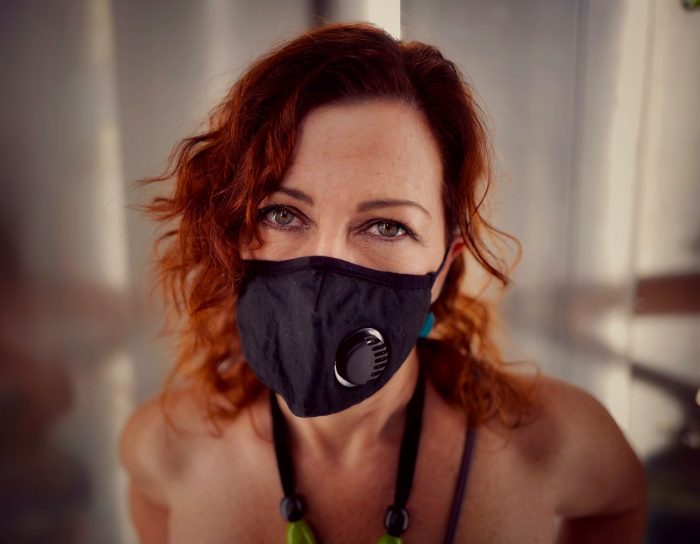Navigating unrelenting levels of fear, divisiveness, and stress during the pandemic has taken a toll beyond the obvious physical threat.
Over the past two years, I’ve thankfully not lost a single client to COVID-19. Many contracted the virus, especially near the end of 2021, and while the symptoms varied greatly, most were relieved to overcome it and felt renewed gratitude toward their body’s strength.
As a therapist, I’ve been regaled with stories of physical and emotional hardship that seemed to ebb and flow in relation to the spread of Covid. But recently, what worries me the most is noticing the fast decline in mental health, that unlike Covid, has spared no one and is increasingly chipping away at quality of life.
Families have not seen each other for long stretches of time. Some have divided over differing approaches to current mandates, and many no longer speak. Marriages have crumbled as couples got pushed to the edge by added external pressure; domestic abuse has been fueled by job losses, lockdowns, and conflict over how to manage risk in close confinement.
Young adults have been restricted from healthy social outlets, making dating feel dangerous and irresponsible. A woman in her mid-20s recently lamented that these are the years she’s supposed to be finding a life partner and instead she’s stuck at home alone, feeling disheartened about the future.
High-school kids have been bullied, shamed online, and ostracized if hesitant to follow mainstream protocols. I hear more and more people saying that they need to numb out with marijuana and alcohol, providing further evidence to reports of skyrocketing substance abuse.
The elderly have been isolated, many denied operations because of strained medical systems. Anxiety and depression are rampant across all ages.
The level of discontent out there is overwhelming. These are not faceless individuals who partook in some data collecting survey; these are the real struggles of the people I work with and care about. Some I’ve known for years; they’re individuals who were doing well but are now presenting with relapsing disorders.
More and more people are reaching out for help and the mental health industry is struggling to keep up.
Mental health is challenged even more by the massive cognitive dissonance we experience daily. The term cognitive dissonance is used to describe the discomfort that results from holding two conflicting beliefs, values, or attitudes. It erodes coherence and is often part of abusive relationships.
As an example, when someone claims to love you and then they continue to put you down and make you feel horrible, the mixed messages feel destabilizing. It’s a tactic used to create a sense of distorted reality. The more confused we feel, the more we can’t trust our own perceptions of the person or situation.
With the pandemic, many of the guidelines and measures have left us downright confused about what and who to trust. UNESCO and various reputable experts warned about school closures being detrimental, especially for marginalized children, and yet governments continued to enforce some of the harshest restrictions on the population that was least at risk.
Essentially, kids were lectured to get off their devices before the pandemic and then forced to be on them for most of their needs during the pandemic. Kids adapted by having to normalize addictive digital practices as everything became limited to online, from education to entertainment, exercise to socialization.
Adding to our cognitive dissonance, doctors and scientists with stellar credentials have been discredited almost overnight. Nobel Prize winners like Luc Montagnier, Maria Ressa, and Tasuku Honjo have been defamed and shrouded in controversy. The use of certain medicines was banned in some countries and heralded in others. Natural immunity is no longer medically recognized as it once was for previous illnesses.
It’s hard to trust in a world full of conflicting information. We hold anti-bullying assemblies in gyms in grade schools across the country and then hear political leaders engage in hate speech. We may even experience dissonance on a personal level when we identify as caring and kind individuals and then find ourselves harshly judging friends and neighbors for their differing opinions.
Whenever there is inconsistency between what we believe and how we behave, or what we see and what we’re told, parts of the self become fragmented. All these inconsistencies plunge us further into distressed states of incongruous thinking. Living within these kinds of contradictory values, attitudes, and perspectives is highly unsettling and anxiety-inducing.
Areas of society appear to be incrementally collapsing into ethically questionable systems. There’s a sense of having to choose between identifying with privileged people who merit basic freedoms because they’re seen as responsible, or unprivileged people who must suffer the consequences of their irresponsible choices. No alternatives or middle grounds exist.
A concerned mother spoke with me about her son who was experiencing depression after being forced to end sports activities because of his status. No options for regular screening or intermittent testing were offered as possible choices to this otherwise healthy youth.
When it comes to traveling, the ever-changing guidelines seem to vary between countries and airlines making travel more difficult to plan for and enjoy. And for those who cannot travel, many feel there should be alternative options for safe screening.
Not long ago, a chat with a friend echoed this sentiment. Someone close to her expressed feeling bad knowing that she can’t travel or go to restaurants anymore. My friend felt resentful and clarified, “They don’t get it. I technically can travel and go, I’m healthy and I have the means, but I’m forbidden to do so. I’ve always been a good person, but now I feel like a second-class citizen in my own country.”
It feels like a slippery slope. While it is imperative to responsibly reduce risk in a conscientious manner, choice and freewill cannot be treated as optional oversights. Some of the current regulations undermine basic human rights and as John F. Kennedy said, “The rights of every man are diminished when the rights of one man are threatened.”
Emergency measures have also fractured economical and social solidarity. The sad thing is that lockdowns are now being criticized as having done little to curb the spread of illness, and from a mental health perspective, it’s clear that they’ve done more harm than good.
In “A Literature Review and Meta-Analysis of the Effects of Lockdowns on Covid-19 Mortality,” evidence was studied to determine whether lockdowns helped prevent deaths from Covid-19. The 62-page document concluded with this observation:
“The use of lockdowns is a unique feature of the COVID-19 pandemic. Lockdowns have not been used to such a large extent during any of the pandemics of the past century. However, lockdowns during the initial phase of the COVID-19 pandemic have had devastating effects. They have contributed to reducing economic activity, raising unemployment, reducing schooling, causing political unrest, contributing to domestic violence, and undermining liberal democracy. These costs to society must be compared to the benefits of lockdowns, which our meta-analysis has shown are marginal at best.”
We’re now going on three years of social unrest and the lack of effective leadership has made people irritable and quick to shame and blame. Unfortunately, feelings are so strained that there’s more divisiveness than ever. The truth is, we all crave getting back to a sense of normalcy. We want to feel safe again.
Maybe the way in which we believe change will happen is different, but it’s important to acknowledge that these differences have also been largely propagated by political agendas. I sense deep frustration in all populations; it’s no longer about medical status. Just as there’s no single correct way to climb a mountain, when it comes to health, there’s no singular solution or correct way to approach it. We ought to have choices in how we manage private aspects of our lives.
Living in sustained states of free-floating anxiety and disconnection is indisputably detrimental and the injurious results manifest in all aspects of life. Whether we’re afraid of the virus or the government, we’re still living in fear. Whether we’re being name-called a grandma-killer or a zombified-sheep, we’re still all human first. We need to keep this in mind as we are pulled further into the Covid chasm.
Now more than ever, we have a rare global opportunity to come together over our collective suffering. In the past, from courtrooms to classrooms, we’ve relied on debates and hearings for resolution. Instead of fearing expression, more conversations need to happen. Censorship is to society what stonewalling is to relationships, a sure way to sever connection. Objectively listening to concerns with shared socially-benefiting intentions is conducive to reaching understanding, and ultimately solutions. We all benefit from accountable and respectful communication.
In recovery groups, much of the therapeutic healing comes from feeling less alone. Being able to resonate with others’ stories is powerfully validating.
Similarly, we’re all finding ourselves having experienced deep loss and unbearable fear. It feels like we’re in need of a global recovery group, an environment that can hold space for our experience without judgement. What we share in common surpasses our differences and this unifying resonance holds the opportunity for much needed healing.
No matter where on earth one lives, we’re all unfortunately too familiar with the emotional exhaustion of recent years.
Anyone could start a conversation with you about how frustrated they are with closures, how tired they are of waiting for things to go back to normal, how much they long for BBQ parties and conversations that don’t tiptoe around political or medical mandates, and instantly, some part of you will get it and know exactly what that person means.
Distress has been felt around the world; it is time to set aside our Covid divisions and connect over the shared feeling of struggle. We can slowly help each other grieve the vacations we didn’t get to go on, the weddings that took place without many of our loved ones present, the graduations we were denied, and the grandparents whose funerals we couldn’t attend.
We’re sad, stressed, angry, and afraid to open up because it all feels too vulnerable. The experiences we endured need to be met with empathy; this type of inclusive receptivity is important for coming together safely. Much like in recovery groups, our pain needs to be witnessed and met with compassion and care.
At this point, we could all use a break. There is so much suffering and collective yearning for relief; perhaps it’s time we begin helping one another feel valued again, no matter our differences.
All of us long for a sense of pre-pandemic ease. The more we soften back toward reciprocal kindness, the more we repair the fabric of our collective well-being.
~












Read 14 comments and reply